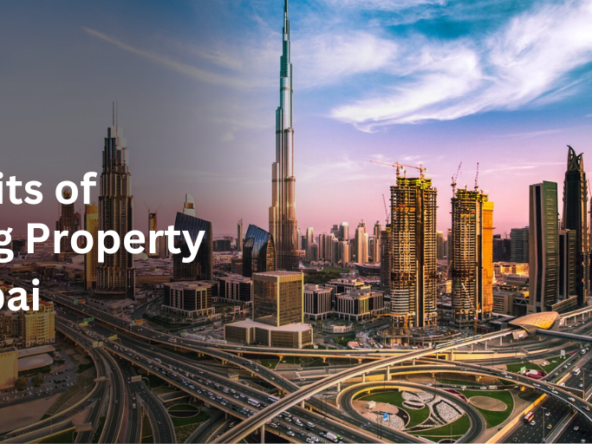Dubai, the crown jewel of the UAE, is famous for its luxurious skyline, iconic landmarks, and thriving economy. Its real estate market has been one of the most attractive for investors worldwide. Whether you’re considering buying property in Dubai as a long-term investment or seeking a place to call home, understanding how real estate works in Dubai is crucial. In this blog, we’ll explore the key aspects of the real estate market in Dubai, including regulations, property types, and tips for first-time buyers.
1. The Dubai Real Estate Market Overview
Dubai’s real estate market has seen consistent growth over the past decade, driven by the government’s focus on infrastructure development, business-friendly policies, and a robust tourism industry. The city’s booming economy and status as a global financial and trade hub have made it one of the most attractive real estate markets in the world. With its skyscrapers, stunning villas, and beachfront properties, Dubai is a city where modern living and luxury converge.
Dubai’s real estate market appeals to both local and international buyers, offering properties ranging from luxurious waterfront villas and high-rise apartments to affordable housing in emerging neighborhoods. The government’s strategic urban planning and mega-projects have bolstered the city’s appeal, making it a highly sought-after destination for real estate investment.
Real estate in Dubai is governed by a mix of local laws, federal regulations, and international standards. One of the major attractions is the freedom it offers foreign investors. Unlike many other countries, there are no significant restrictions on foreign property ownership in designated areas, known as freehold areas. This provides an attractive opportunity for non-residents to invest and own property in Dubai.
2. Types of Properties in Dubai
Dubai’s real estate market offers a diverse array of properties, catering to different needs, preferences, and budgets. Here are some of the most popular types of properties in Dubai:
Apartments
High-rise apartments are highly sought after in prime areas such as Downtown Dubai, Dubai Marina, and Business Bay. These apartments are ideal for individuals, small families, or young professionals looking for a modern, low-maintenance home. Many apartments offer stunning views of the city skyline or the Arabian Gulf. Dubai’s iconic Burj Khalifa and Palm Jumeirah are examples of landmarks surrounded by luxurious apartment complexes.
Villas and Townhouses
For those seeking more space, privacy, and exclusivity, villas and townhouses are common in communities like Arabian Ranches, Palm Jumeirah, and Emirates Hills. These properties typically come with private gardens, swimming pools, and ample living space, making them ideal for larger families or individuals who prefer a more tranquil, suburban lifestyle.
Commercial Properties
Dubai’s strategic location as a global business hub makes it an attractive destination for commercial real estate investments. From office buildings in prime locations like Dubai International Financial Centre (DIFC) to retail spaces in malls such as The Dubai Mall, commercial properties provide excellent opportunities for businesses to expand and generate rental income. Industrial properties are also in demand as Dubai continues to develop its trade and logistics infrastructure.
Off-Plan Properties
Dubai’s off-plan market allows investors to purchase properties before they are completed, often at a lower price point. While buying off-plan offers opportunities for capital appreciation, it comes with risks, such as delays in construction. Buyers should conduct thorough due diligence before committing to such investments, ensuring they work with reputable developers and understand the terms of the purchase agreement.
3. Key Regulations and Laws for Real Estate in Dubai
When buying real estate in Dubai, it’s essential to familiarize yourself with local laws and regulations. Understanding these legal frameworks can help you navigate the process smoothly and avoid potential pitfalls.
Freehold and Leasehold Areas
Foreign buyers can purchase property in designated freehold areas, where full ownership rights are granted. In contrast, leasehold areas typically allow ownership for up to 99 years, with a renewal option after the lease term expires. Freehold areas are often the preferred choice for foreign investors, as they offer full legal rights and the ability to transfer property ownership freely.
Dubai Land Department (DLD)
The Dubai Land Department (DLD) is the governing body responsible for regulating property transactions in Dubai. All property transactions must be registered with the DLD to ensure that both the buyer’s and seller’s interests are legally protected. The DLD also handles property-related fees, including registration and title deeds.
No Property Tax
One of the major benefits of buying property in Dubai is the absence of property taxes. Unlike many other countries, property owners in Dubai are not required to pay annual property taxes. This can result in significant savings for investors and homeowners in the long term.
Mortgage Laws
Foreign buyers can apply for a mortgage in Dubai, although the terms may differ from those in their home countries. Typically, expatriates are required to make a higher down payment, usually around 25% of the property’s value, while UAE nationals may only need to pay 20%. Mortgages are offered by local banks and financial institutions, but buyers should ensure they meet the necessary eligibility criteria before applying.
4. Tips for First-Time Buyers in Dubai
If you’re a first-time buyer in Dubai, here are some essential tips to help you navigate the real estate market:
Understand the Market
Dubai offers a variety of property options, from luxurious high-rise apartments to more affordable suburban villas. Researching neighborhoods, property types, and pricing is essential before making any decisions. Popular areas like Dubai Marina, Jumeirah, and Downtown Dubai cater to different lifestyle needs, while emerging neighborhoods offer more affordable choices.
Hire a Professional
While Dubai’s real estate market is relatively straightforward, hiring a professional real estate agent can save time and effort. A certified real estate agent with in-depth knowledge of the market can help you find the right property, negotiate on your behalf, and guide you through legal processes
Check Financing Options
If you plan to finance your property through a mortgage, ensure you understand your financing options. Compare interest rates, repayment terms, and eligibility criteria from different banks to secure the best deal. Some banks may offer special rates for UAE nationals or long-term residents, so it’s essential to explore all possibilities.
Know Your Budget
Having a clear budget is essential when buying property in Dubai. Aside from the purchase price, there are additional costs such as registration fees, agent commissions, and maintenance charges. Factor these costs into your budget to avoid unexpected financial burdens.
Visit the Property
Before committing to any purchase, always visit the property in person. This allows you to inspect the condition of the property and ensure that it meets your expectations. Photographs and virtual tours are helpful, but visiting in person offers a better understanding of the property’s location, amenities, and overall condition.
5. The Future of Real Estate in Dubai
Dubai’s real estate market has shown remarkable resilience and growth, even during periods of global economic uncertainty. With mega-projects such as Expo City, Dubai Creek Tower, and the Museum of the Future, the city’s infrastructure continues to evolve. New developments continue to attract both local and international buyers, ensuring long-term growth and investment potential.
The demand for luxury properties is expected to rise, driven by Dubai’s reputation as a global hub for tourism, business, and entertainment. At the same time, the city is focusing on providing more affordable housing options for residents, with new initiatives aimed at creating sustainable and well-connected communities.
Despite occasional fluctuations, Dubai’s real estate sector remains a solid investment choice, with opportunities in both residential and commercial properties. The city’s progressive attitude towards innovation and growth ensures that it will remain a desirable destination for years to come.
Conclusion
Dubai’s real estate market offers exceptional opportunities for both investors and homebuyers. By understanding the types of properties available, the regulations that govern the market, and the necessary steps to take as a first-time buyer, you can make informed decisions and secure your place in one of the world’s most dynamic and attractive cities.
Whether you’re looking for a luxury residence, a profitable investment, or a prime commercial space, Palma Luxury Real Estate provides exclusive properties that cater to every need. From high-end apartments to waterfront villas, Palma Luxury ensures a premium real estate experience in Dubai’s thriving market.
For more information or assistance with your real estate journey in Dubai, feel free to reach out to a professional agent who can guide you through the process and help you navigate Dubai’s vibrant property market with Palma Luxury Real Estate.




